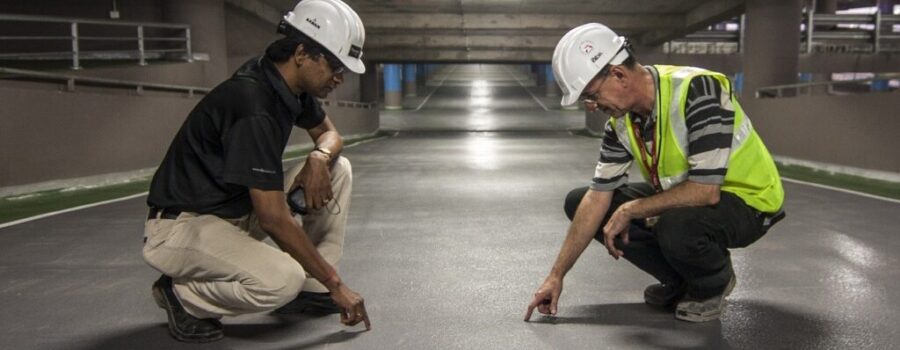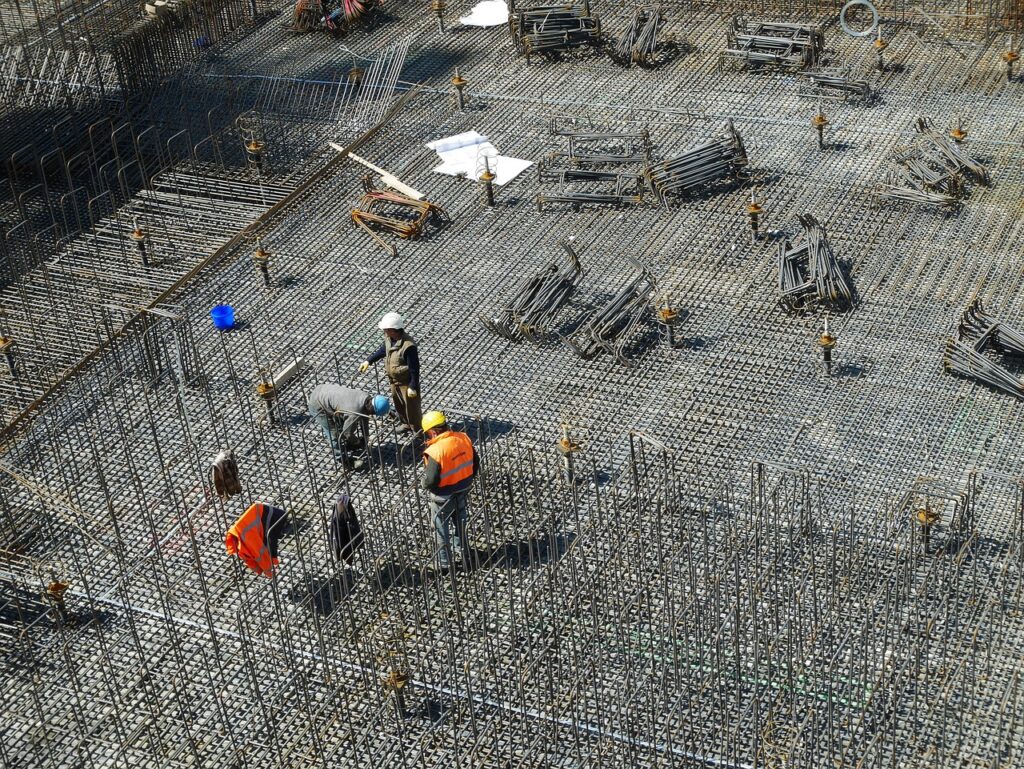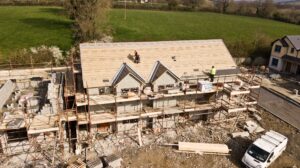
The Role of a Structural Engineer in Real Estate Development Planning
If you’re getting ready to construct a commercial or residential building, there are many different professionals who will be required to work on the project alongside you. Along with the core construction team, it’s essential that you hire a structural engineer. Structural engineers are in charge of designing and analyzing the structural integrity of buildings, bridges, and other structures. These individuals make sure that the building you’re developing will be able to handle any forces and loads that occur, which ensures the safety of anyone who enters the building.
When you’re designing a new structure, a structural engineer can be helpful in a variety of ways. For instance, they can assist you in the creation of detailed construction plans for the residential or commercial building that you want to develop. When creating the construction plans, the structural engineer that you hire will be tasked with selecting the right design for the foundation as well as the best materials for the job. They will take into account the stresses caused by environmental loads like thermal and wind to identify how the constructed building will hold up. Keep in mind that structural engineers may also be needed for site investigations and project management.
In order for someone to become a structural engineer, they must first obtain a bachelor’s degree in civil engineering or structural engineering. Upon earning this degree, graduates can start working as an engineer in training. Before being able to operate as a structural engineer, the individual must earn a professional engineer license, which can only be had after 4-5 years of on-the-job training and experience. Since structural engineers require licenses to operate in California, you can be confident that the individual you hire is qualified to perform the job.
Along with the tasks mentioned previously, structural engineers can assist with home-purchase transactions, storm-damage assessments, and construction defects. If you’re in the midst of creating a real estate development plan, you will likely need to hire a structural engineer at some point in the process.
This article offers a closer look at the type of role that a structural engineer is used for during the development of a commercial or residential building.
Residential Buildings for Structural Engineers

When you’re developing a residential building, it’s important to understand that a structural engineer will likely be required at different intervals of the project. For residential projects, structural engineers are necessary for the design of a new structure or when an existing structure is undergoing substantial alterations. For projects that involve changes being made to a current structure, a structural engineer might need to be brought in if a load-bearing wall is being removed or when an entire room is being added to the home.
The overall project size typically determines if a structural engineer will be necessary. If a new flooring material is being added to the bathroom, a structural engineer won’t be required. On the other hand, any minor or major renovation that involves making changes to the structural components of the property will call for an engineer. For major renovations, you’ll first want to obtain a plan from a designer or architect before consulting with a structural engineer.
Make sure that the structural engineer of your choosing comprehends every facet of construction before you make the hire. The work that a structural engineer does can’t be trusted if they don’t fully understand the technology that’s being used in the home, the structural components of the property, and the home performance.
Major Renovation
If you plan on completing a major renovation to your home that will increase its value, there are numerous considerations for you to take into account. Major renovations involve any addition or renovation to a home that requires a building permit. If a room is being added to your home or electrical work is required while the project is ongoing, this would be considered a major renovation. Once you have identified what your goals and budget should be for the project at hand, you’ll want to bring in an architect or designer to create a plan for your renovation.
The plan that the architect/designer makes will mainly include the dimensions and layouts of the proposed project. While the designer or architect is drawing up the plan, they will need to be assisted by a structural engineer to identify the environmental loads, live load, and dead load. The engineer is also responsible for performing various calculations and analyzing the entirety of the plan. When the engineer has made sure that the structural aspects of the renovation are sound, the contractor for the project can begin their work.
Minor Renovation
Minor renovations are ones that likely don’t require an architectural plan before the project can begin. However, many of these projects will still require a building permit before you will be allowed to start construction. A type of minor renovation that’s relatively common is for a load-bearing wall to be removed, which may be necessary if you want to alter your floor plan to create a more open layout. At the beginning of this project, the structural engineer that you hire will initially identify if the wall is considered to be load-bearing, which means that the wall is involved in holding the components above it.
After the engineer inspects the wall, they’ll be able to tell you what other changes must occur during the project for the renovation to be completed without issue. In the event that the wall is considered to be a load-bearing one, the structural engineer will create a beam or column system that will act as a replacement for the wall. You will likely be given a detailed engineering report of the overall scope of the work before the beam or column system is built. This report can be used to gain a building permit for the project.
Structural Engineering for Commercial Buildings

While residential development projects don’t always require the presence of a structural engineer, these engineers are essential for every type of commercial project, which includes everything from renovations to new construction. While you can hire the structural engineer yourself, most architects who work on commercial projects will automatically hire an engineer to work alongside them while the project is ongoing. During the development of a commercial building, the structural engineer is mainly responsible for site investigation, the creation of construction plans, and project management.
Site Investigation
Site investigation is the first phase that occurs in the construction of a new commercial building. Before you can begin designing the building, the structural engineer will perform a site investigation to identify if the soil can properly accommodate the project. If the soil holds water easily, development may not be able to go forward until soil correction occurs, which involves the weak soil being removed and replaced with a soil that’s conducive to commercial development. Structural engineers use their knowledge during a site investigation to officially verify that the site can accommodate the project without issue.
Construction Plans
Structural engineers work directly with the architect to create comprehensive construction plans. As mentioned previously, the structural engineer is responsible for focusing on the overall design for the foundation, the materials that are going to be used for the project, the environmental loads, and the size of the beams that will be used in the building.
At this point, the structural engineer must determine how each type of stress will affect the building. Safety regulations are also a heavy consideration when creating a construction plan. Different professionals must work together with the structural engineer to ensure that local safety regulations are being met. These regulations could affect everything from the foundation of the building to any staircases that are being constructed.
Project Management
When the structural engineer has completed a site investigation and has created all of the necessary construction plans, construction on the building can begin. Structural engineers can be very helpful during the construction phase of a development project. These professionals can assist in project management by:
- Providing environmental directives
- Supervising the different project teams to make sure that everything is coordinated
- Providing regular progress reports
- Ensuring that all legal guidelines are met
- Making sure that all safety and health requirements are met
Final Thoughts on a Structural Engineer

Structural engineers play an integral role in nearly every real estate development project. Whether they need to investigate the intended site of a commercial development project or are required to assist in the creation of a construction plan, structural engineers are responsible for making sure that the structure of the building is safe and secure once construction is finished.
Construction defects and problems should be kept to a minimum if you hire a reputable structural engineer who has garnered ample amounts of experience. When you’re searching for the right structural engineer, it’s recommended that you ask for references and make sure that they have a professional engineer license before you make your hire.

Jason Somers, President & Founder of Crest Real Estate
With over 15 years of professional experience in the Los Angeles luxury real estate market, Jason Somers has the background, judgement and track record to provide an unparalleled level of real estate services. His widespread knowledge helps clients identify and acquire income producing properties and value-ad development opportunities.
Learn more about Jason Somers or contact us.



